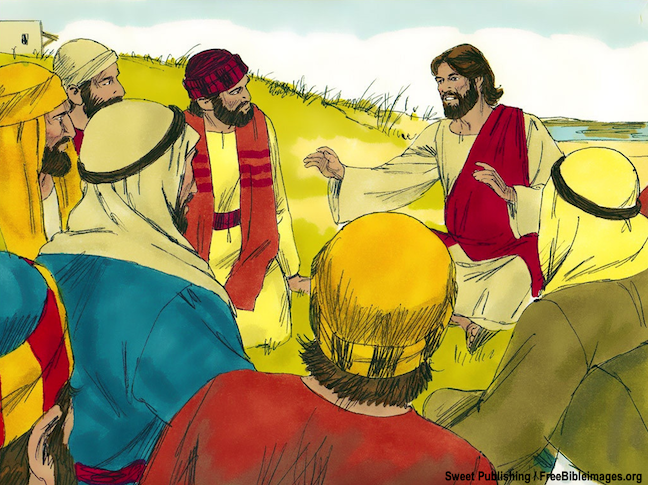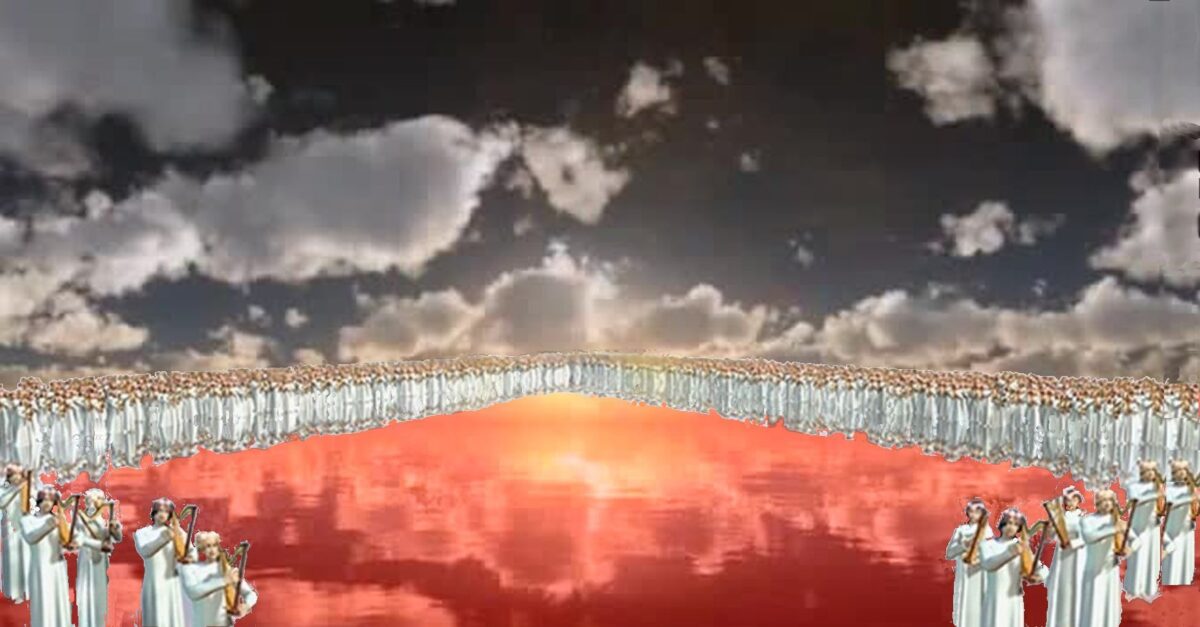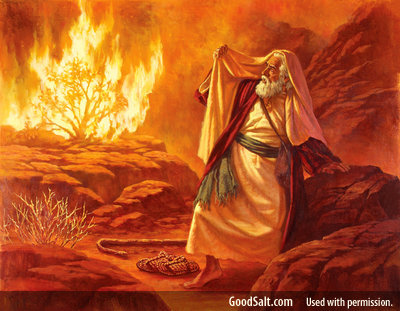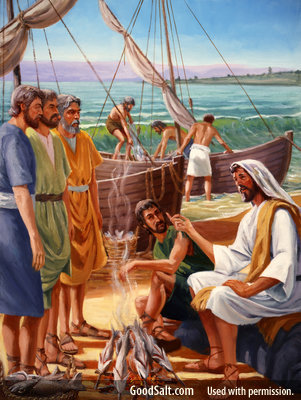“Again, the kingdom of heaven is like a merchant seeking beautiful pearls, who, when he had found one pearl of great price, went and sold all that he had and bought it.” Matthew 13:45-46
As Valentine’s Day approaches the Lord drew me to some verses in Matthew 13 that have been a great source of encouragement to me. It may not be obvious to the reader at first, but I believe these verses underscore the incredible love that the Lord Jesus has for us.

In Matthew 13 Jesus shares many “parables” (13:3) or earthly stories which illustrate biblical truths about a period of time known as the Church Age which exists between Israel’s rejection of Christ all the way through to the end of the Tribulation period when Christ returns to earth to set up His Millennial Kingdom. One of these parables illustrates the value of a person during this time (13:45-46).
To be consistent with the previous parables (Matt. 13:24, 37, 44), it is best to understand the “merchant” to be Jesus Christ (13:45). The merchant is “seeking beautiful pearls” which represent lost individuals (cf. Luke 19:10).
In 13:45-46, the merchant is doing the work, not the pearl of great price. The merchant is doing the buying and the saving, not the pearl. The merchant is the one with the strength, not the pearl. The pearl does nothing. The merchant, Jesus Christ, does it all. It costs us nothing to get to heaven. But it cost Jesus everything. We do not give God all that we have to get to heaven. It is not you giving God your life; it is God giving you His life.“And this is the testimony: that God has given us eternal life, and this life is in His Son” (I John 5:11).
Some people incorrectly think that the pearl of great price is eternal life, and the merchant is a person who wants to be saved. To get to heaven, they teach that the merchant must sell all he has or be willing to give up all he has to enter the kingdom. But what does Jesus say we must do to enter the kingdom of heaven according to John 3:5-16? We must simply be born of water (physical birth) and of the Spirit (spiritual birth). We are born spiritually by believing in Jesus for eternal life, not by living a good life or giving sacrificially.
If you have doubts about Christ doing it all for your salvation, Matthew 13:45-46 should help to dispel your doubts. The focus of this parable is on the performance of Jesus Christ, not our performance. None of us would have any hope of going to heaven if we based it on our own works. Going to heaven is based on the finished work of Christ on the cross (John 3:15-16; 19:30), not our works (Rom. 4:5; Ephes. 2:8-9).

Notice that the merchant finds “one pearl” (13:45-46a). Christ contrasts the “one pearl” (sg) with the many “pearls” (pl) (13:45-46a). Jesus is comparing the individual lost person to a precious pearl of “great price.”
Why are pearls so costly and expensive? Among the people of Jesus’ day, pearls were ranked highest among precious stones because their beauty derives entirely from nature, making improvement by human workmanship an impossibility. All other precious gems are metals or stones, but a pearl is a gem formed within the oyster – the only one formed by living flesh. For some reason, the oyster shell is pierced by a foreign irritant (e.g., grain of sand, etc.), which enters the shell. The oyster releases healing fluids around the wound and that foreign irritant that has hurt and penetrated it. Over the course of time, the irritant is covered, and the wound is healed by a pearl. The pearl, we might say, is the answer of the oyster to that which injured it.
The pearl represents pain resulting in beauty. Christ’s pain and suffering on the cross resulted in our redemption. Jesus is comparing the lost individual that He has “found” to a “pearl of great price.” In God’s eyes, every believer is a precious pearl. But sometimes, we see ourselves as worthless pebbles, don’t we? We may have a difficult time believing that we are important to the Lord, but we are! That is what Jesus is telling us here! The last part of verse 46 tells us just how valuable we are to Christ.

What was the “great price” this merchant paid for the pearl? Jesus tells us the merchant “went and sold all that he had and bought it” (13:46b). The word “sold” (pepraken) is in the perfect tense which means his sale of everything in the past continues to have results in the present (cf. John 19:30). The word “bought” (agorazō) is used of Jesus’ death on the cross (1 Cor. 6:20; 2 Pet. 2:1). When Jesus says the merchant “went and sold all that he had and bought it,” think of what Jesus gave up for each individual believer. He gave up His majesty in heaven, His glorified state, surrounded by the holy angels of God and He comes down to this sinful earth. He was born in a humble cattle trough to poor parents. He suffers and dies a humiliating death on a cross. Your sins and my sins were placed upon Him as He hung on the cross – separated from His Father for the first and last time so He could purchase each individual person with His blood (I Pet. 1:18-19; Rev. 5:9). This is how much He loved you and me!
Our worth is not based upon our performance, but upon Christ’s performance on the cross. Jesus’ death provided the basis for God’s acceptance of us (Ephes. 1:6-7) and giving us eternal life when we believe in Christ (John 3:14-15). If anyone should know how much we are worth, it is God. He not only created us, but He bought us with the price of His Son.
If you were to wear a price tag around your neck, what value would you put on it? How much do you think you are worth? One billion dollars? One million? One thousand? One hundred? Zero? The truth is God would put Jesus Christ on that price tag because He bought you with the price of His Son.
A few years ago, when my wife and I were shopping for pearls in Metro Manila, we met a Muslim vendor who showed us her pearls. During our conversation with her, the Holy Spirit led us to share Matthew 13:45-46 with her. We explained to her that Jesus Christ was the merchant Who found one pearl of great price. When it says He sold everything to buy the pearl, we told her that Jesus sees her as a precious pearl and loves her very much. She said, “That is true.” After we shared the gospel of Jesus’ death and resurrection with her, she said she was now believing in Jesus for His gift of everlasting life.
How does God want us to respond to such an incredible truth?
1. PRAISE God that we are worth the life and death of His Son. God wants us to worship Him. We are to adore the Lord because of the immense value He has given to us in Jesus Christ.
2. PRACTICE godliness out of GRATITUDE. Live for the Lord because of who He is and what He has done for you. “And He died for all, that those who live should live no longer for themselves, but for Him who died for them and rose again” (2 Cor. 5:15). Christ did not die and rise again for us so we can live for ourselves now. He died and rose again for us so we can now live for Him as a way of saying “Thank You” for what He gave up so we could be in a relationship with Him forever. Our good works can become a “thank You” note to the Lord.
3. PROCLAIM the gospel to every individual person (Mark 16:15). Jesus said to go into all the world – to every nation. Why? To preach the gospel to every individual in the world since every individual is precious to God. God longs to save every person because every person is like a precious pearl in His sight.
Share the message of the gospel with others so they can discover how precious they are to their Creator and Savior. God does not want us to keep the gospel to ourselves. He wants us to share it with every individual lost person because each one is very precious to Him. Ask the Lord to show you whom He wants you to share the gospel with this week. He loves to answer that prayer.
Prayer: Father in heaven, thank You for sending Jesus to seek us out to save us, much like a merchant seeking beautiful pearls. And like the merchant who found one pearl of great price and gave up all he had to purchase that one pearl, so Christ gave up everything so He could purchase us with His shed blood on the cross. Our value was determined by the price Jesus paid for each of us. Each of us is worth Your Son. Nothing is of more value to You than that. Please lead us to those You have prepared to hear and believe the good news of Christ’s death and resurrection so they may be saved forever from the penalty of their sin. In Jesus’ matchless name we pray. Amen.







